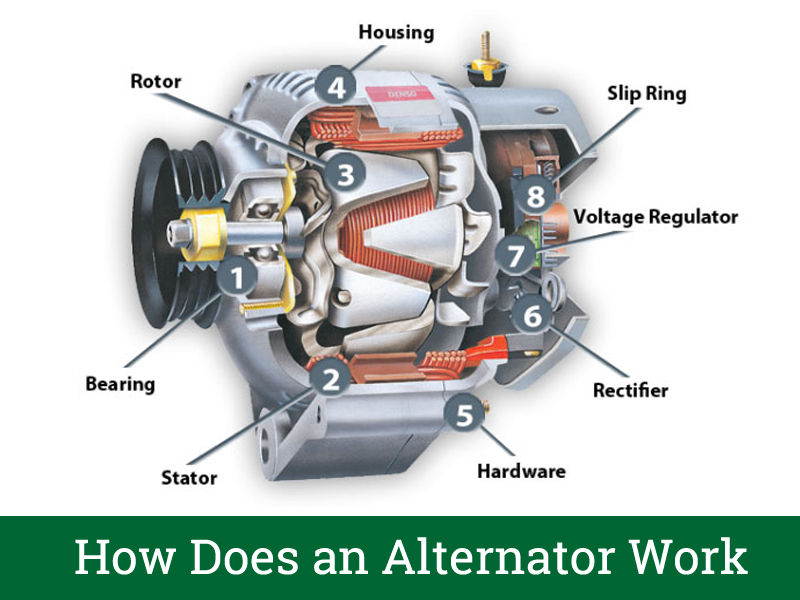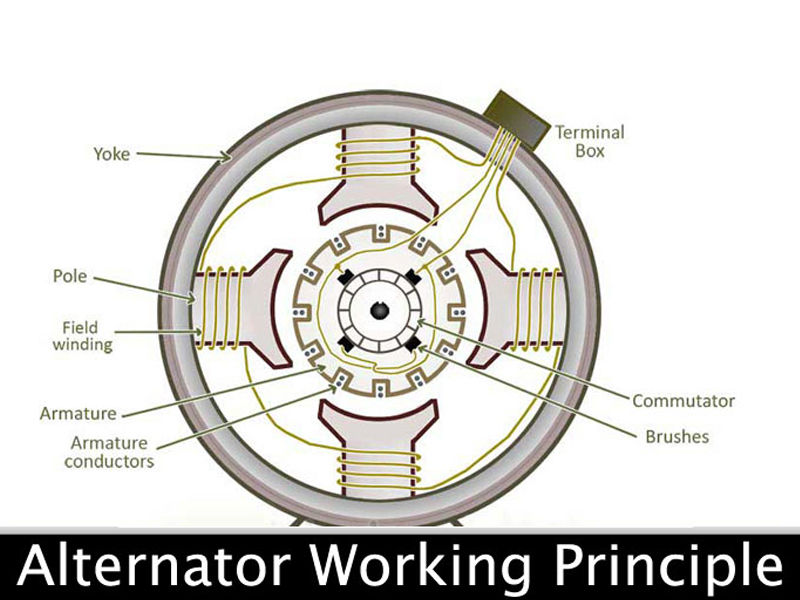
How Does an Alternator Work? The Simple Facts
Disclosure: This post may contain affiliate links, meaning if you decide to make a purchase via my links, I may earn a commission at no additional cost to you. See my disclosure for more info.
Have you ever wondered what makes your car's electrical system tick? Well, today's your lucky day because we're diving into the fascinating world of alternators.

An alternator works by converting mechanical energy from the engine into electrical energy. As the engine spins, it turns a rotor surrounded by a magnetic field within the alternator. This rotation induces an alternating current (AC) in wire coils within the stator. The AC is then converted into direct current (DC) by diodes, providing the electricity needed to power your car's electrical systems. Through a voltage regulator, the alternator adjusts output to meet the vehicle's electrical demands.
Table of contents
Strap in and get ready for a journey through the inner workings of this essential automotive component.
Understand How an Alternator Works
Let's start with the basics. An alternator is a crucial part of your car's electrical system, responsible for generating electricity to power everything from the headlights to the radio. Think of it as a miniature power plant tucked away under the hood, constantly churning out the energy needed to keep your ride running smoothly.
But how exactly does an alternator work its magic? Well, it all begins with a simple concept: electromagnetic induction. Don't worry, I'll break it down for you in plain English.
Alternator Components
Inside every alternator, you'll find a rotor, a stator, and a bunch of wire coils. When your car's engine is running, the crankshaft spins the rotor at a rapid pace. This rotor is surrounded by a magnetic field, which is created by the flow of electricity through the wire coils in the stator.
As the rotor spins, it generates an alternating current (AC) in the wire coils of the stator. This alternating current is then converted into direct current (DC) by a set of diodes within the alternator. DC is the type of electricity that your car's electrical system uses to power all its gadgets and gizmos.
But here's the really cool part, the alternator doesn't just produce electricity willy-nilly. It's actually super smart and knows exactly how much juice your car needs at any given moment. How does it pull off this nifty trick? Well, it's all thanks to something called a voltage regulator.
The voltage regulator is like the brain of the alternator, constantly monitoring the electrical system and adjusting the output voltage accordingly. So, if your headlights are on, the voltage regulator will crank up the power to ensure they shine bright. But if you're just cruising down the highway with nothing but the radio playing, it'll dial back the output to conserve energy. Pretty neat, huh?
Now, you might be wondering what happens when your car's battery dies. After all, if the alternator is responsible for keeping the battery charged, won't it conk out too? Not necessarily!
You see, the alternator and the battery work together in a beautiful symbiotic relationship. While the alternator does indeed keep the battery topped up during normal operation, it's the battery's job to provide the initial jolt of electricity needed to start the engine.
Once the engine is running, the alternator takes over, supplying the power to keep everything running smoothly. So, even if your battery decides to take an unscheduled nap, as long as the alternator is still chugging away, you should be able to keep on truckin'.
Alternator Maintenance
Of course, like any part of your car, alternators aren't immune to wear and tear. Over time, the bearings may start to wear out, the diodes could fail, or the wiring might get fried. When this happens, you might notice your lights flickering, strange noises coming from under the hood, or even warning lights popping up on your dashboard.
If you suspect that your alternator is on the fritz, it's best to get it checked out by a qualified mechanic as soon as possible. Ignoring the problem could lead to a dead battery, stranded on the side of the road, and nobody wants that.
Final Thoughts
The alternator is a true unsung hero of the automotive world, quietly churning away under the hood to keep your car's electrical system humming along. From generating electricity to regulating voltage, this little marvel does it all with ease.
So, the next time you turn the key and hear your engine roar to life, take a moment to thank your friendly neighborhood alternator. After all, without it, you'd be going nowhere fast!
